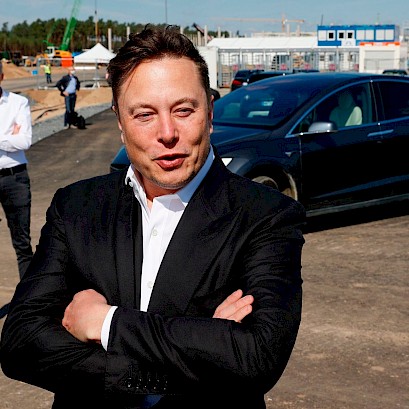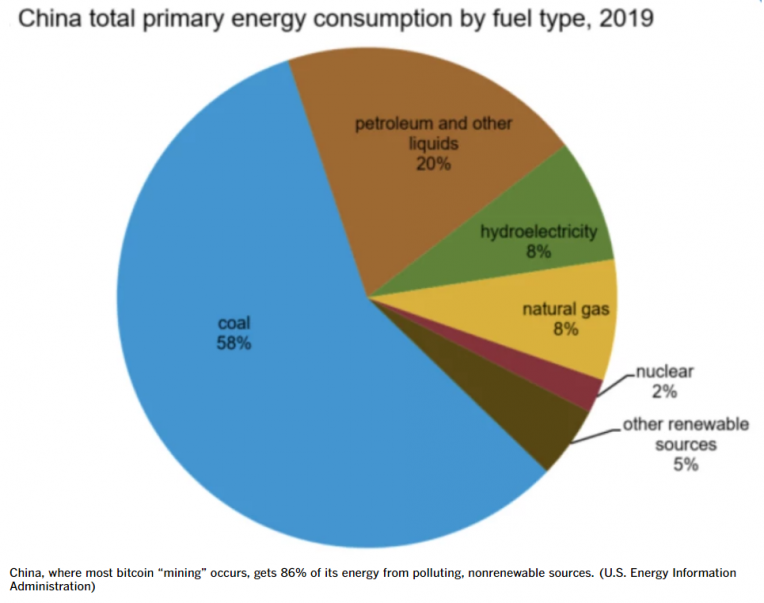Is Elon Musk trying to destroy bitcoin over environmental concerns?
 For anyone still wondering why bitcoin lost nearly 8% of its value in the blink of an eye Sunday and has slid even more on Monday, we have two words of explanation: Elon Musk.
For anyone still wondering why bitcoin lost nearly 8% of its value in the blink of an eye Sunday and has slid even more on Monday, we have two words of explanation: Elon Musk.
Since Feb. 8, when Tesla, his electric-car company, announced that it had bought $1.5 billion in the vaporous cryptocurrency, the price of bitcoin has risen and fallen in step with Musk’s further pronouncements.
Bitcoin rose when Tesla said it would start taking bitcoin in payment for its cars. It fell Wednesday, when Musk said those deals were off — an announcement that helped lop about about $10,000, or nearly 20%, from bitcoin’s price in the space of 12 hours.
We are also looking at other cryptocurrencies that use <1% of Bitcoin’s energy/transaction.
ELON MUSK
Bitcoin fell again Sunday when Musk seemed to hint, in a Twitter exchange with a noted bitcoin bull, that Tesla had sold its bitcoin holdings. Then it rose (though not enough to make up the losses) when he tweeted later Sunday “to clarify speculation” that Tesla had not sold any of its bitcoin.
Is there any wonder that the bitcoin community has come to feel, in the words of Danyaal Rashid, an analyst at GlobalData, that Musk “has too much influence over prices”?
The fear is that his relentless whipsawing of prices is bad for the reputation of bitcoin and other cryptoassets as well. “People may lose faith in these cryptocurrencies as one Tweet from Musk can radically change the price — quashing any idea that there are any real fundamentals at play,” Rashid wrote.
That’s true, but it shouldn’t be overlooked that Musk’s Wednesday reversal on bitcoin purchases of Tesla vehicles linked his decision to one of the real downsides of bitcoin — the stupendous consumption of energy, much of it generated by fossil fuels, by computers engaged in bitcoin “mining.”
In his announcement, Musk referred to the “rapidly increasing use of fossil fuels for Bitcoin mining and transactions,” which obviously is at odds with his depiction of Tesla as a bulwark against fossil fuel-driven climate change.
It’s proper to point out here that Musk’s will-he-or-won’t-he tweets and his corporate policies related to bitcoin don’t appear to have any economic rationale. (“He is messing with us,” is the judgment of Matt Levine of Bloomberg.)
If he’s truly concerned about bitcoin’s environmental footprint, he’s rather late to the game, especially if he’s implying that he just learned about it. That’s because the issue has been known about and widely discussed for a few years, at least.
So let’s take a look at that issue and what, if anything, Elon Musk can do about it.
Bitcoins are theoretically produced through the solving of an increasingly abstruse computer riddle, requiring ever increasing computing power to solve. The process is known as mining. Successful miners are awarded a supply of bitcoins, which will top out permanently at 21 million; about 18.7 million have already been “mined,” so the frenzy for mining the last few is intensifying.
The amount of energy to run the mining computers is often compared to consumption by whole countries — over the last year, I’ve seen Austria, the Philippines, New Zealand, Ukraine and Argentina invoked.

But it’s not simply the level of consumption, but the source of the energy that concerns environmentalists. An estimated 65% of all bitcoin mining occurs in China, where the electric grid is massively polluting. About 86% of China’s energy consumption comes from nonrenewable sources, including 58% from coal (the worst-polluting source), 20% from oil and 8% from natural gas.
All told, according to the Sierra Club, carbon dioxide produced by bitcoin mining could increase global temperatures by 2 degrees Celsius over 30 years. That would have a devastating effect on the environment, causing widespread extinctions, the destruction of forests and the collapse of the ocean ecosystem.
In reversing Tesla’s decision to accept bitcoin as payment for its cars, Musk said the company would resume “as soon as mining transitions to more sustainable energy.” That’s obviously a long way off.
Musk said, “We are also looking at other cryptocurrencies that use <1% of Bitcoin’s energy/transaction.”
You can return to the main Market News page, or press the Back button on your browser.

